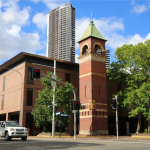When Can a Child’s Case be Hearing in an Adult Court in New South Wales?

Barney Wakes-Miller parents have been campaigning tirelessly for modifications to cars and changes to road rules, since he was killed in a car accident in July last year.
His 17 year old friend, a P-plater, is accused to have been drink driving on Sydney’s Northern Beaches with Barney and four other teenage passengers when he lost control of the vehicle and crashed into a stone wall. Everyone in the car survived without injury, except Barney who suffered severe head injuries and died at the scene.
The teenage driver (who cannot be named for legal reasons) was charged with numerous offences including:
- Dangerous driving occasioning death,
- Negligent driving occasioning death,
- Failing to comply with the condition on his provisional licence to not have more than one passenger under 18 after 11pm,
- Driving with unrestrained passengers,
- Sustained loss of traction,
- Driving at a speed or in a manner that is dangerous, and
- Driving with a middle range prescribed concentration of alcohol, also known as mid range drink driving.
He is yet to enter pleas to any of the charges and the Director of Public Prosecutions (DPP) has signalled an intention to have the case referred from the Children’s Court to the District Court of New South Wales.
When can a Children’s Court case be referred to an adult court?
As the driver was 17 years old at the time of the alleged offences, he would ordinarily be dealt with by the Children’s Court.
In fact, the Children’s Court has the power to hear and determine cases where the defendant was under the age of 18 years when the offence allegedly occurred and under 21 when he or she was charged.
However, there are a number of situations where a case relating to a child may be referred to a higher court, such as the District Court of New South Wales.
These situations are outlined in the Children (Criminal Proceedings) Act 1987 (‘the Act’), and can be broadly categorised as:
- Traffic offences,
- Serious children’s indictable offences,
- Indictable offences that are committed to the District Court, and
- Child sexual assault offences.
1. Traffic offences
Section 28(2) of the Act provides that the Children’s Court does not have the power to determine a traffic offence – such as drink driving, negligent driving, or driving at a speed or in a manner that is dangerous – unless:
- The alleged offence arose from the same circumstances as another for which the person is before the Children’s Court, or
- The person was not old enough to have a driver licence.
In any other case, traffic offences are heard in an adult court, such as the Local Court of New South Wales.
2. Serious children’s indictable offences
Section 28(1) of the Act makes clear that the Children’s Court does not have the power finalise a serious children’s indictable offence.
Section 3 of the Act defines such an offence as:
- Homicide (eg murder or manslaughter),
- Aggravated sexual assault under section 61J of the Crimes Act, or an attempt to commit that offence, unless the complainant was under the age of 16,
- Assault with intent to have sexual intercourse under section 61K, of the Crimes Act, or an attempt to commit that offence,
- Manufacturing or selling firearms under the Firearms Act 1996 where the maximum penalty is 20 years in prison,
- Any offence punishable by 25 years or life in prison, and
- Any other indictable offence which may be prescribed by the regulations as a serious children’s indictable offence. In that regard, clause 4 of the Children (Criminal Proceedings) Regulation 2016 prescribes sexual assault by forced manipulation where the child was under the age of 10 years under section 80A of the Crimes Act as a serious children’s indictable offence.
These charges will need to be committed (referred) to a higher court, which in most cases is the District Court of New South Wales.
3. Indictable offences that are committed to the District Court
‘Indictable offences’ are those which are capable of being committed (referred) to a higher court such as the District Court for finalisation.
These can be distinguished from ‘summary offences’ which are generally those which carry a maximum penalty of two years or less in prison, and are disposed of in the Local Court when it comes to adults.
Section 31(2) of the Act provides that a defendant may at any time during, or at the close of, the prosecution case choose to have his or her indictable case committed to the District Court, rather than finalised in the Children’s Court.
Section 31(3) of the Act empowers the Children’s Court to commit an indictable offence to the District Court if the court is of the opinion, after hearing all of the prosecution evidence:
- That the evidence is capable of satisfying a jury beyond a reasonable doubt that the person committed the offence, and
- That the charge may not properly be disposed of in a summary manner.
The Children’s Court must be satisfied of three matters before it can refer such a case to the District Court:
- That the offence is an indictable offence,
- That the evidence, taken at its highest, must be capable of satisfying a properly instructed jury that the person committed the offence, and
- That it is not proper for the case to be finalised in the Children’s Court.
The court may take a wide range of factors into account when determining the third matter, including:
- The nature and seriousness of the alleged offence,
- The person’s criminal record, and
- The likely penalty if he or she were found guilty.
4. Child sexual assault offences
Under section 31AA of the Act, a ‘child sexual assault offence’ is a prescribed sexual offence – other than a serious children’s indictable offence – where the complainant was under the age of 16 years at the time of the offence (or under 18 years the offence of sexual intercourse – young person between 16 and 18 under special care under section 73 of the Crimes Act 1900 or Sexual touching – young person between 16 and 18 under special care under section 73A of that Act).
A full list of prescribed sexual offences is listed in section 3 of the Criminal Procedure Act 1986 (NSW).
Section 31(3A) of the Act makes clear that such offences must be committed to the District Court if the prosecution requests that they be so committed.
Otherwise, the same assessment applies as that for indictable offences committed to the District Court.
Going to the Children’s Court?
If you or a loved-one has been accused of a criminal offence and is scheduled to attend the Children’s Court, call Sydney Criminal Lawyers anytime on (02) 9261 8881 to arrange a free first conference with a defence lawyer who has years of specialist experience representing children and young persons.








